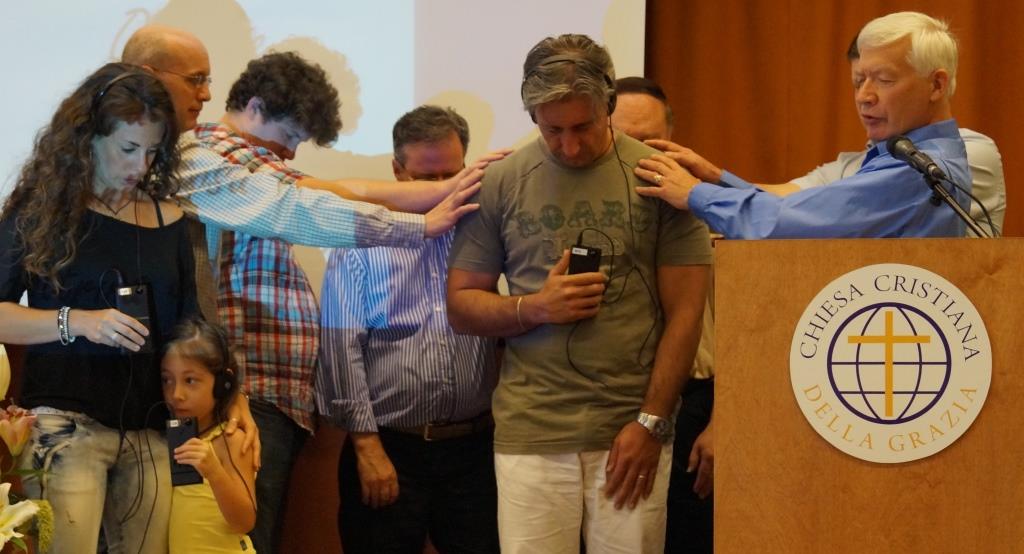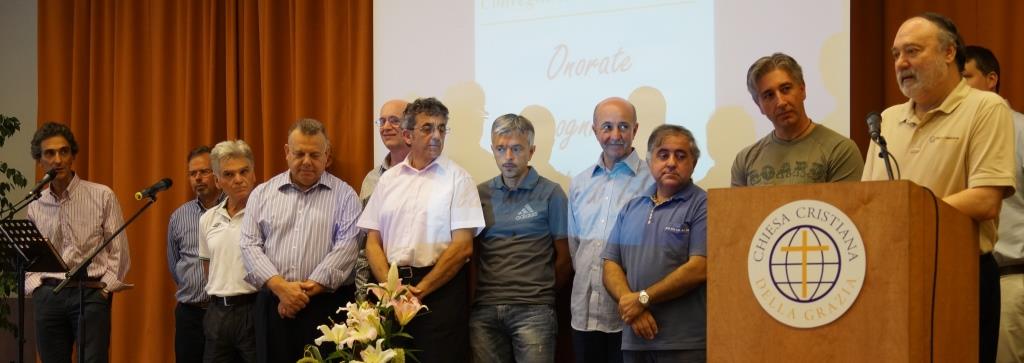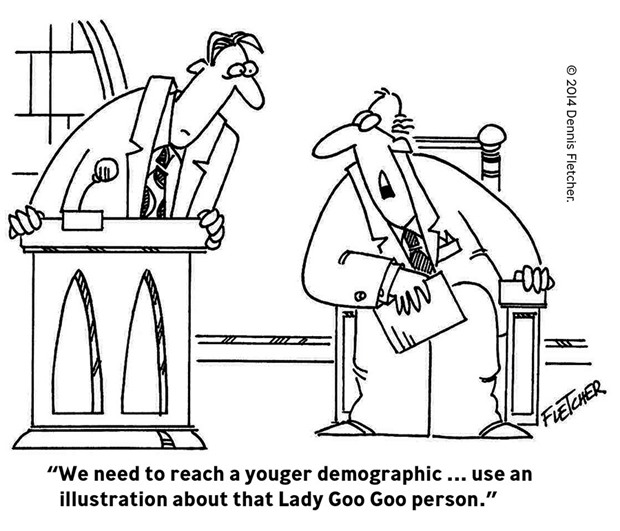Dear Brothers and Sisters in Christ,
 Ask 20 ministers from multiple denominations to define grace and you’ll likely get many different definitions, along with some lively discussion! Ask several GCI ministers and you’ll likely get some variety, but there will be a common core of understanding. One thing is for sure, in GCI we’ve stopped trying to force-fit grace into a framework of legalism. Thank God!
Ask 20 ministers from multiple denominations to define grace and you’ll likely get many different definitions, along with some lively discussion! Ask several GCI ministers and you’ll likely get some variety, but there will be a common core of understanding. One thing is for sure, in GCI we’ve stopped trying to force-fit grace into a framework of legalism. Thank God!
Grace defies simplistic, one-size-fits-all definitions. It’s too profound for that, which is why the Bible reminds us that God’s grace is an inexhaustible topic—one worthy of a lifetime of study. That’s why Peter admonished Christians to “Grow in the grace and knowledge of our Lord and Savior Jesus Christ” (2 Peter 3:18). The more I read, study, think and write about grace, the more I find my understanding expanding.
 Google grace on your computer and you’ll uncover multiple definitions. Probably the best-known is this one: “Grace is God’s unmerited favor or pardon.” A. W. Tozer defined it this way: “Grace is the good pleasure of God that inclines him to bestow benefits on the undeserving.” Dutch-Reformed theologian Louis Berkhof defined grace as, “The unmerited operation of God in the heart of man, effected through the agency of the Holy Spirit.” I find the following definition from Karl Barth to be particularly profound (though as often is the case with Barth, it must be carefully read to get the full impact):
Google grace on your computer and you’ll uncover multiple definitions. Probably the best-known is this one: “Grace is God’s unmerited favor or pardon.” A. W. Tozer defined it this way: “Grace is the good pleasure of God that inclines him to bestow benefits on the undeserving.” Dutch-Reformed theologian Louis Berkhof defined grace as, “The unmerited operation of God in the heart of man, effected through the agency of the Holy Spirit.” I find the following definition from Karl Barth to be particularly profound (though as often is the case with Barth, it must be carefully read to get the full impact):
Who really knows what grace is until he has seen it at work here: as the grace which is for man when, because man is wholly and utterly a sinner before God, it can only be against him, and when in fact, even while it is for him, it is also a plaintiff and judge against him, showing him to be incapable of satisfying either God or himself? ….What takes place in this work of inconceivable mercy is, therefore, the free over-ruling of God. It is not an arbitrary overlooking and ignoring, not an artificial bridging, covering-over or hiding. It is a real closing of the breach, gulf, and abyss between God and us, for which we are responsible. At the very point where we refuse and fail, offending and provoking God, making ourselves impossible before him and in that way missing our destiny, treading under foot our dignity, forfeiting our right, losing our salvation and hopelessly compromising our creaturely being—at that very point God himself intervenes as man (Church Dogmatics, Vol. 4.1: The Doctrine of Reconciliation).
I like Barth’s expression, “inconceivable mercy.” It refers to what God, in Christ, through the Spirit, has done and is doing to write within us a new law that emancipates us from sin as well as death. Paul put it this way: “The law of the Spirit of life in Christ Jesus has set you free from the law of sin and of death” (Romans 8:2).
The Greek word charis, usually translated “grace” in the New Testament, has multiple shades of meaning, referring to something that affords joy, pleasure, delight, sweetness, charm, loveliness, goodwill, loving-kindness, favor or gratitude. Scripture tells us that grace is ours by God’s initiative alone. In Christ, through the Spirit, the Father’s will for us is perfectly fulfilled. God’s grace takes us by surprise because nothing that we can do and nothing that we are earns grace. We are predestined and elected in Christ, the Lord and Savior of the whole world. The story of our lives begins and ends with God’s unfathomable, amazing grace.
When I hear or read world news, I wonder why God bothers with us at all. Our brutality, cruelty, bigotry, hypocrisy and greed boggles the mind. But God knows there is another way to live, and his purpose is to share that life with us. He loves us far too much to allow the final result of life—any life—to be determined by our own behavior. In the sovereignty of God’s grace, evil has no future. Christ is making all things new. The new heavens and earth will be established!
God’s plan is to remake us into the image of his Son as we receive his grace by our repentance and faith in him. God even enables that response—one that, by the Spirit, grows deeper throughout our lives, as Paul noted:
For those God foreknew he also predestined to be conformed to the image of his Son, that he might be the firstborn among many brothers and sisters. And those he predestined, he also called; those he called, he also justified; those he justified, he also glorified (Romans 8:29-30).
After observing what God is doing in our lives by grace, Paul proclaimed confidently that, “He who began a good work in you will carry it on to completion until the day of Christ Jesus” (Philippians 1:6). God is not finished with any of us—he alone is the author and finisher of our salvation and he knows how to complete the story that he has begun writing in our lives. In Ephesians 2:10, Paul proclaimed that, “We are God’s handiwork, created in Christ Jesus to do good works, which God prepared in advance for us to do.” The Greek word here for “handiwork” is pōiema, from which we get the word “poem.” By his grace, God is writing the story of our lives—we’re a divinely written ballad, sonnet (or in some cases, a haiku!), full of ups and downs and twisting plot turns. Because of God’s grace, we look forward with hope and confidence to how the story will end.
With love in Jesus’ name,
Joseph Tkach
P.S. I recently participated in a GCI conference in Montegrotto, Italy, attended by about 110 of our Italian brothers and sisters. During the conference we ordained Francesco Bernard, pastor of the GCI congregation in the Puglia/Bari region named Acquaviva Dele Fonti (Living Water of the Well). Here is a picture, with James Henderson, GCI missions director for Europe, leading the ordination prayer.
During the conference we also re-commissioned several ministry leaders who serve GCI’s churches in Turin, Milan, Ferrara, Rome, Sardinia, Catania and Palermo, Italy (see the picture below). Our thanks and congratulations to all these servants of our God of grace.

















